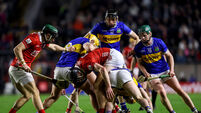Noyer warns of currency volatility
“Excessive turbulence and volatility between currencies and on financial markets are elements that are negative for global growth,” Noyer, who’s also Bank of France governor, said on French radio station BFM.
“We wish for maximum stability because it’s one of the ingredients for confidence, and healthy and durable growth.”














